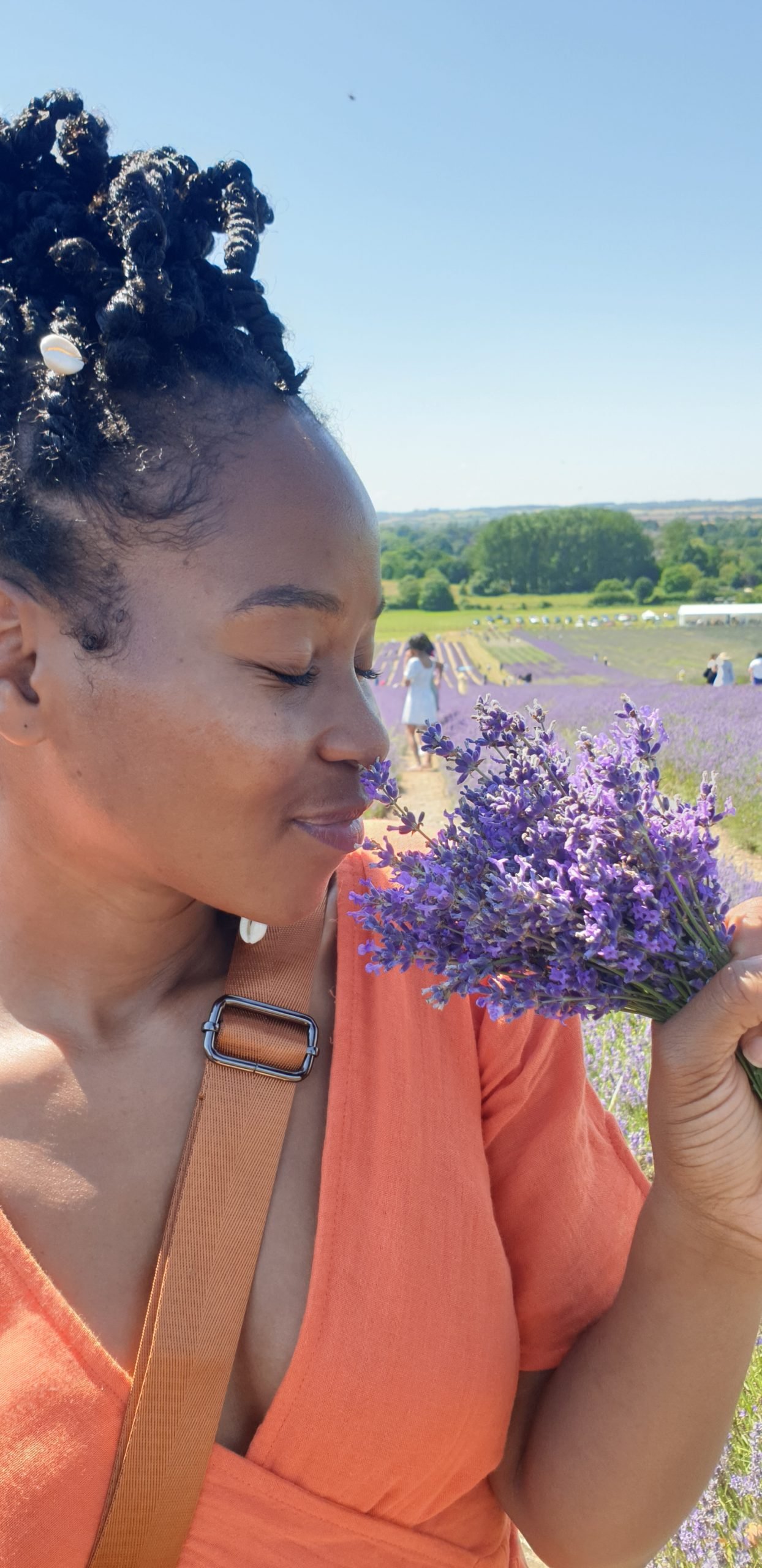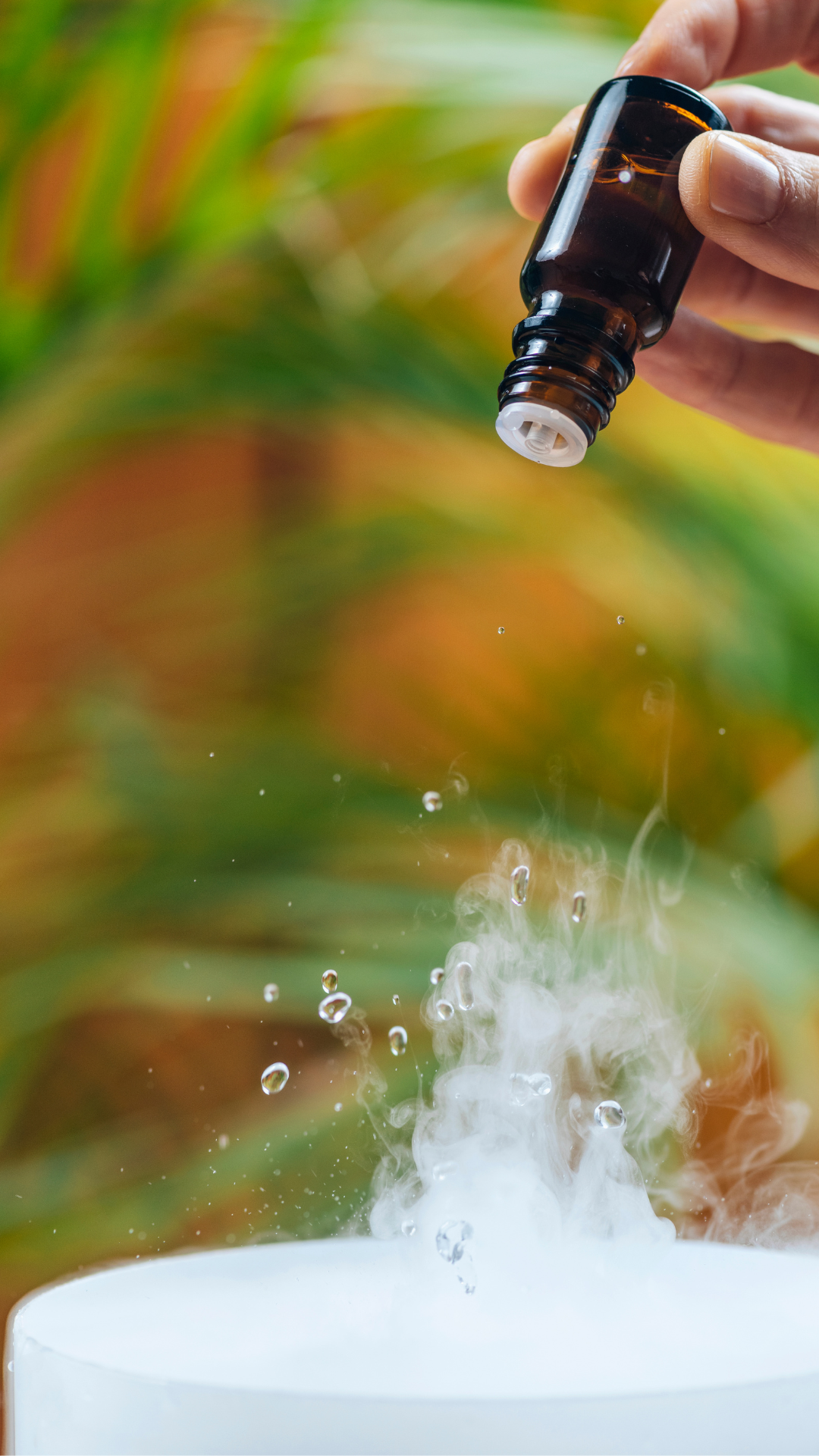Essential Oils For Beginners
As a herbalist, it goes without saying that I absolutely adore plants. I love all the individual parts, all the chemicals and all the constituents.
But the plant chemicals I love the most are the essential oils. They are so versatile and have a wide range of uses - there isn't one day that goes by where I don't use one of these oils.
So in this post I want to share with you exactly why they are so special .. and so essential!
What are essential oils?
Essential oils are super concentrated oily compounds that are found in plants. Think about them as being the essence of a plant. When you rub a piece of mint between your fingers and get a strong whiff of mintiness, that's the essential oil you can smell. The same goes for other aromatic plants such as sage, rosemary and cinnamon.
The next time you're peeling an orange (or any citrus fruit), look closely at the skin as you squeeze it. You'll see little oil drops seeping from the pores - these are the essential oils found in orange.
These oils can come from any part of a herb. In some cases, they're found in the leaves (mint, lemon balm and thyme), in others they're found in the flowers (jasmine, chamomile and orange flower) and some essential oils are even extracted from the roots of plants (vetiver and turmeric).
Essential oils are sometimes referred to as volatile oils, because they easily evaporate at low temperatures, making it possible for us to extract them from plants using steam distillation.
Why are they so special?
Each oil is made up of a unique combination of many chemicals that not only give it a distinctive scent, but specific therapeutic properties. Some of these properties include:
Pain-relieving
Let's look at one of my favourite oils
LAVENDER!
Lavender essential oil is very versatile and is a good one to keep at home and in your handbag or first aid kit for that matter.
Lavender is a well-known sedative and inhaling this oil produces a calming effect on the mind and body. But that's not it. Lavender is highly antiseptic and is great for keeping cuts and wounds clean. It also acts as an anti-inflammatory, which is why I carry it around in the summer for those pesky bites and stings, as well as sunburn! Lavender also has mild analgesic properties, so good for headaches and migraines.
All of those benefits from just a little flower!
5 Ways to use Essential Oils
Note: Essential oils are highly concentrated substances and usually have to be diluted in a base oil (e.g. almond oil, sunflower oil or olive oil). I say usually because there are a small number of oils that can be used directly on the skin without dilution. Lavender and Tea tree oil are good examples of these.
1. Inhalation
One of the easiest and quickest ways to benefit from essential oils is by inhaling them. The chemicals in the aroma travel through the nose and quickly to the brain, producing an almost immediate effect. This explains why smelling lavender or neroli can instantly make you feel more calm.
I always have my oil diffuser on at home and depending on the time of day (energising/uplifting for the AM and calming/soothing for the PM) and my mood, I have a combination of oils diffusing into the air.
You can also inhale oils via steam inhalation. This involves preparing a bucket of hot water and adding a few drops of oil. You then put your face over the bucket with a towel over your head to trap the steam. This is great when you have a cold and stuffy sinuses - Eucalyptus and Thyme work really well for this purpose. Watch an example of this here.
2. For your skin
Essential oils can work wonders for your skin. From helping with problematic skin conditions like acne and eczema, to giving skin a brighter more youthful appearance.
I like to make a homemade face oil and include plants such as lavender, turmeric, frankincense and carrot seed. I've found this combination of essential oils perfect for my skin, especially during the winter.
NOTE: Always carry out a skin patch test before using an essential oil on your skin for the first time.
3. Massage
If you've ever had a massage, it's very likely that an oil was used. If it was an aromatherapy massage, then the therapist would have included essential oils to bring about a desired effect - usually to relax!
Massaging essential oils into your skin can be effective for:
Joint pain - oils like wintergreen and juniper are great here
Period cramps - I love a combination of clary sage and marjoram rubbed on my abdomen if i get cramps
4. Oral Health
Due to their antimicrobial and anti-inflammatory properties, essential oils make good aids for keeping your mouth clean, fighting infection and soothing inflamed gums. I usually like to do some oil-pulling in the mornings (when i get the time that is) using coconut oil and a drop of myrrh or clove essential oil.
Essential oils are great in many homemade toothpaste and mouthwash recipes too!
5. Internal use
The first thing to mention here is that essential oils should only be used internally under the guidance and prescription of a qualified practitioner! They are so concentrated so can be toxic or unsafe if you're not sure what you're doing.
Having said that, I think essential oils make absolutely marvellous medicines when used internally - but only a handful of them in minute super diluted doses. In my practice, I often use thyme, lavender and cinnamon for patients when I deem it necessary.
I hope this post has given you some insight into the world of essential oils and can hopefully get you using them in your daily lives too!
When using this blog, any link you click may result in an affiliate payment to me, I earn a commission from qualifying purchases, at no extra cost to you.




